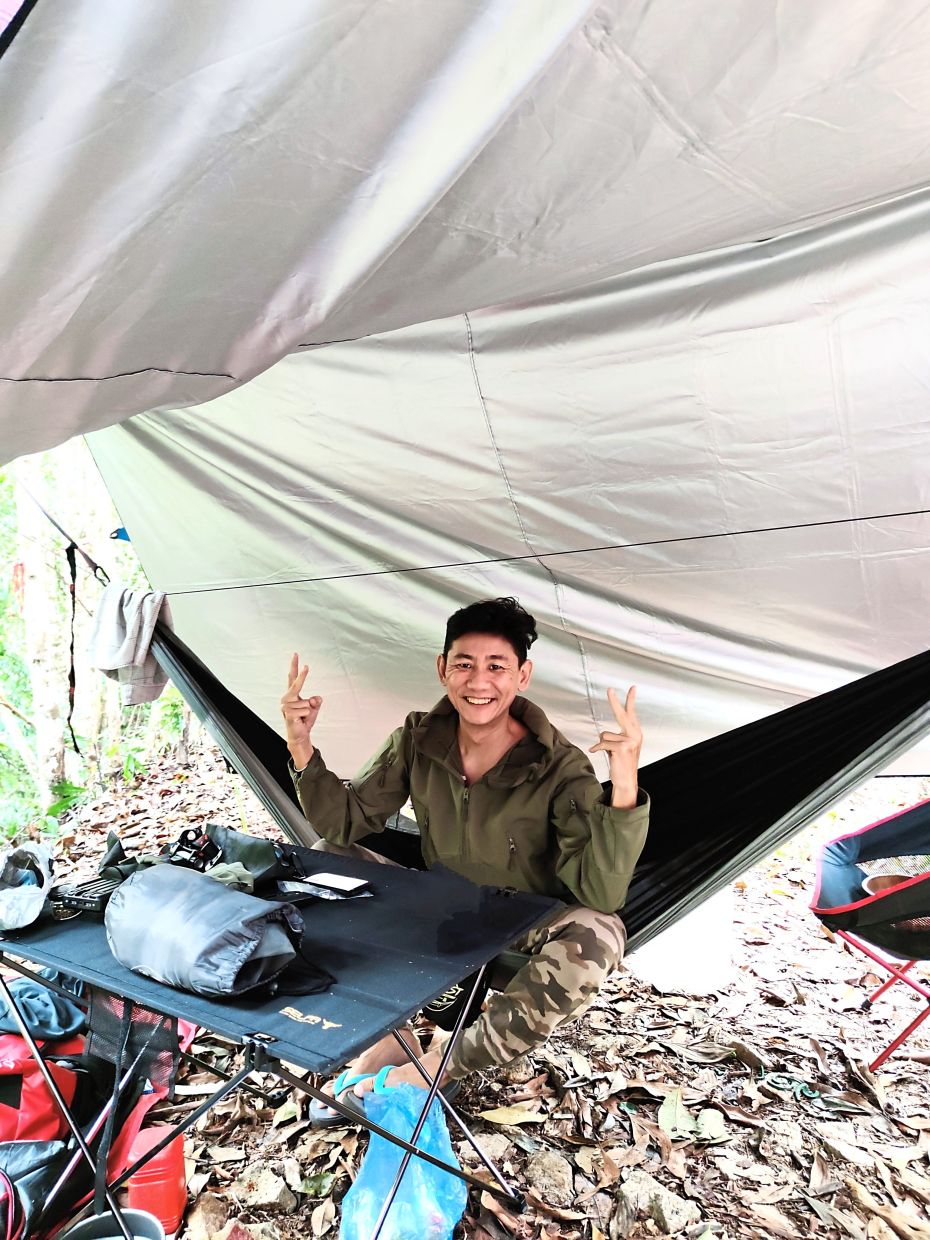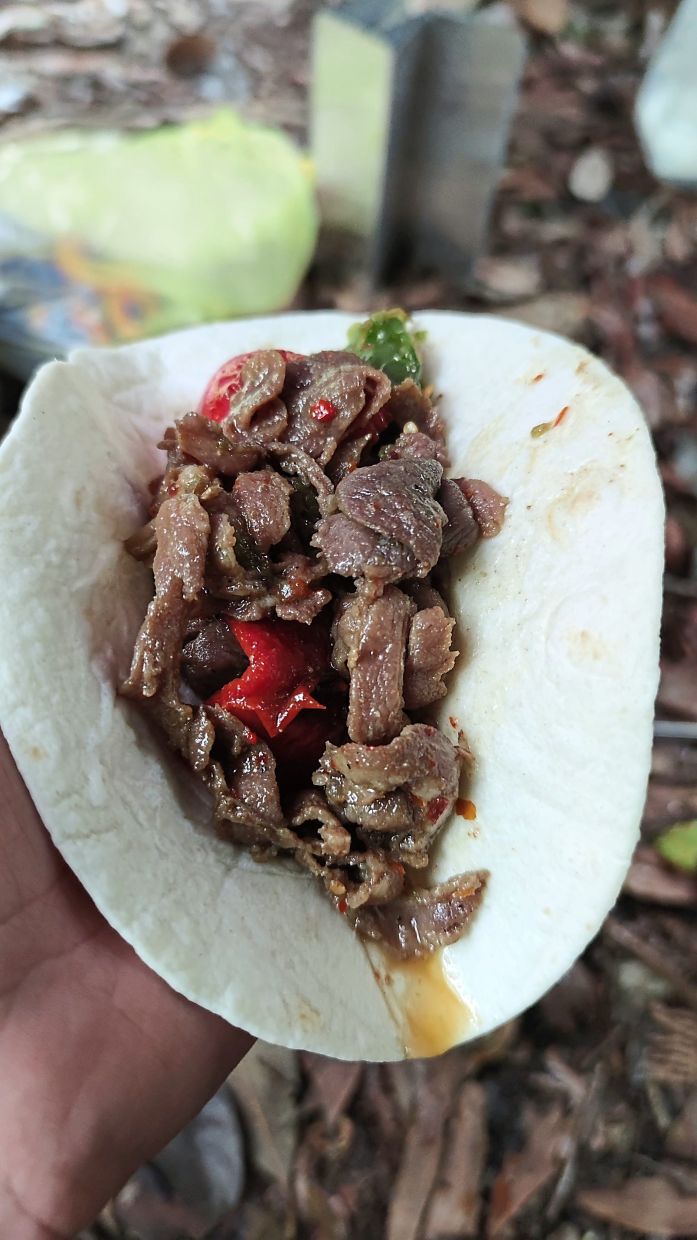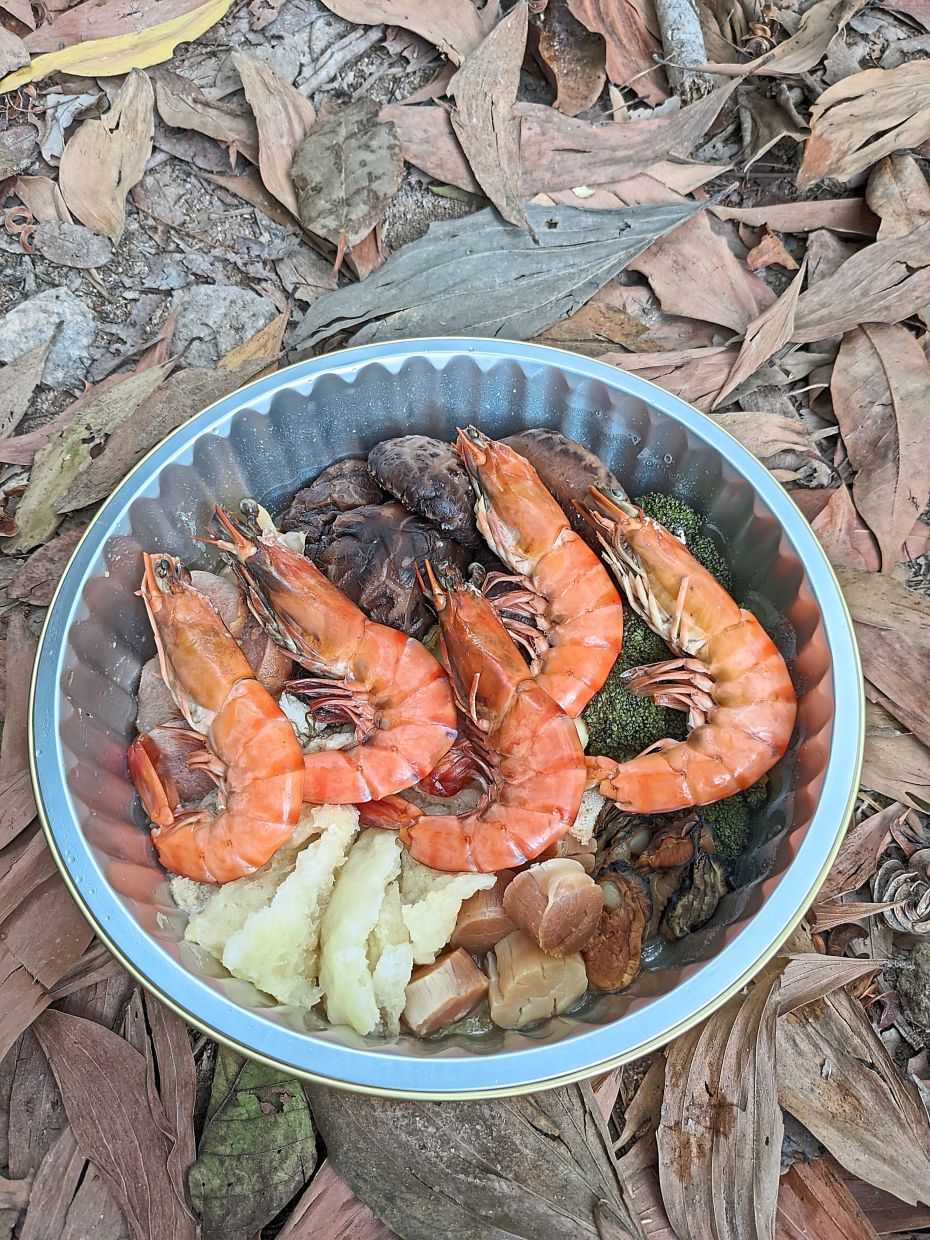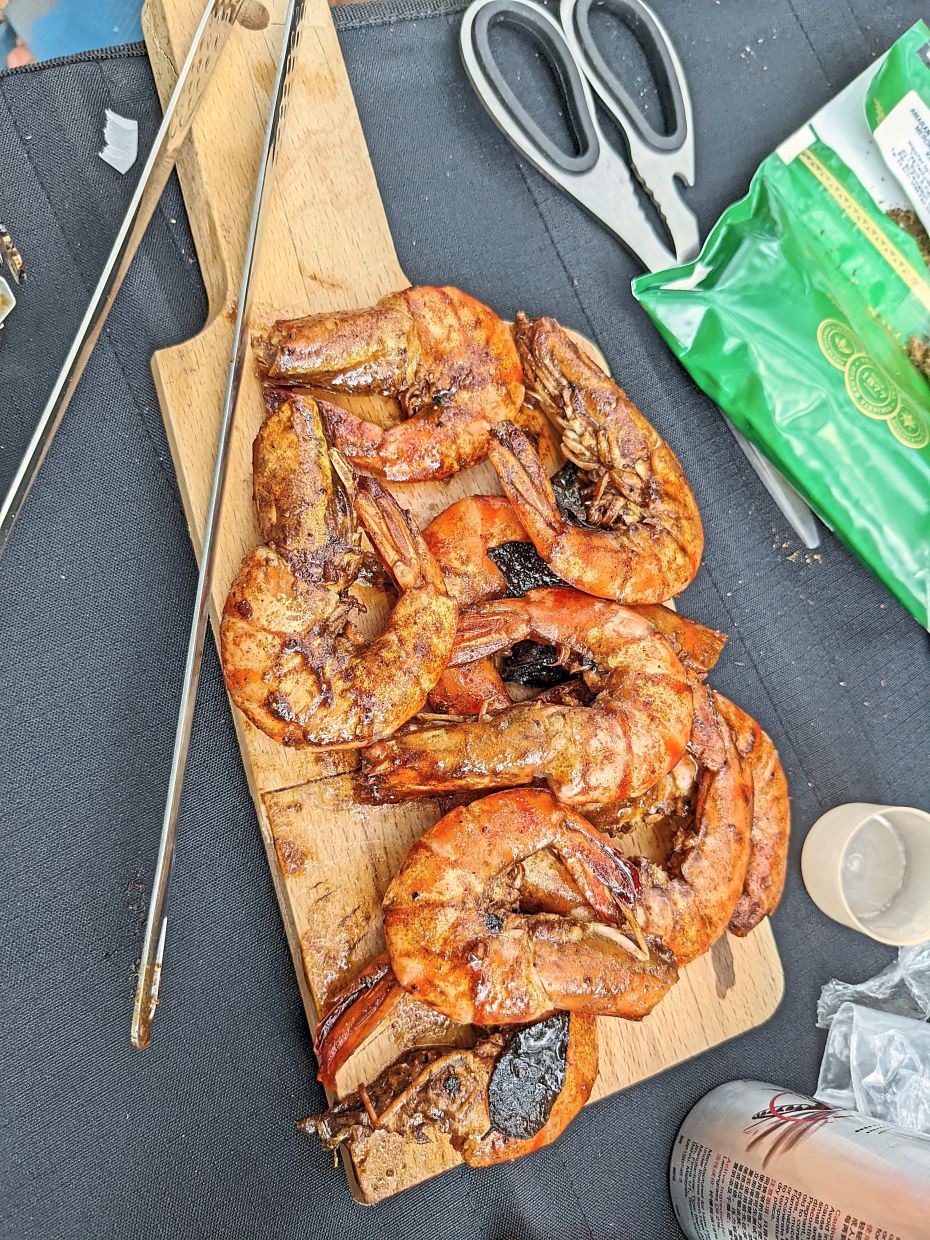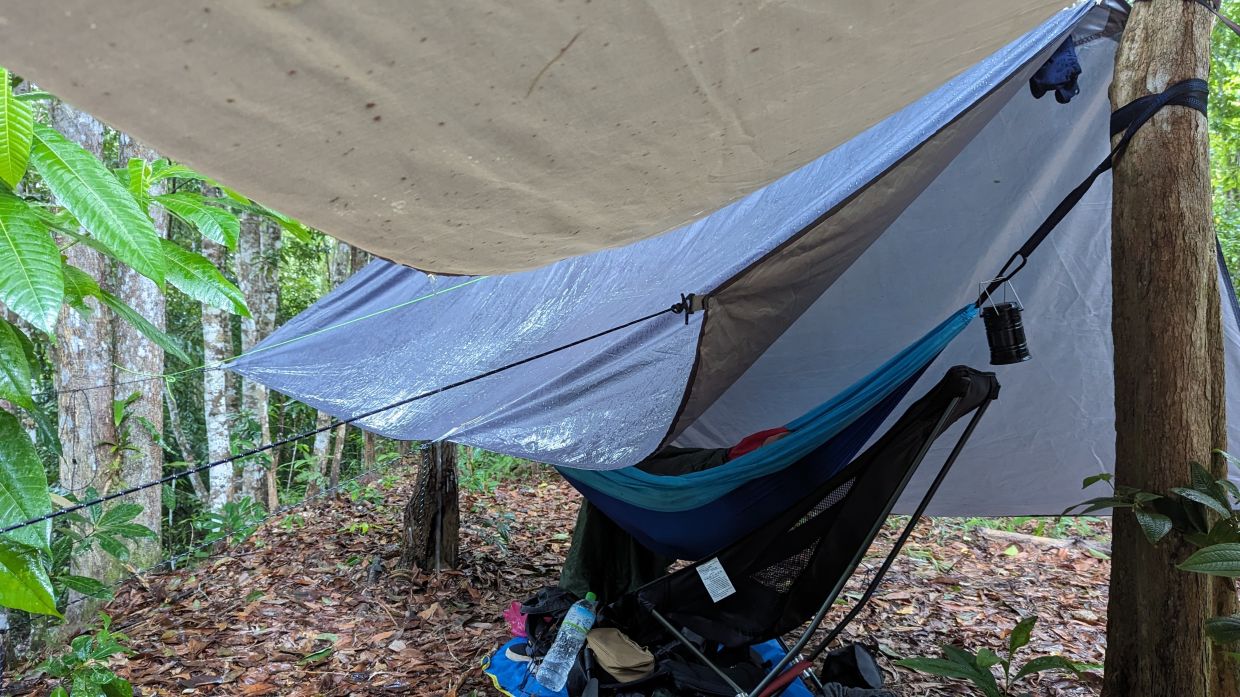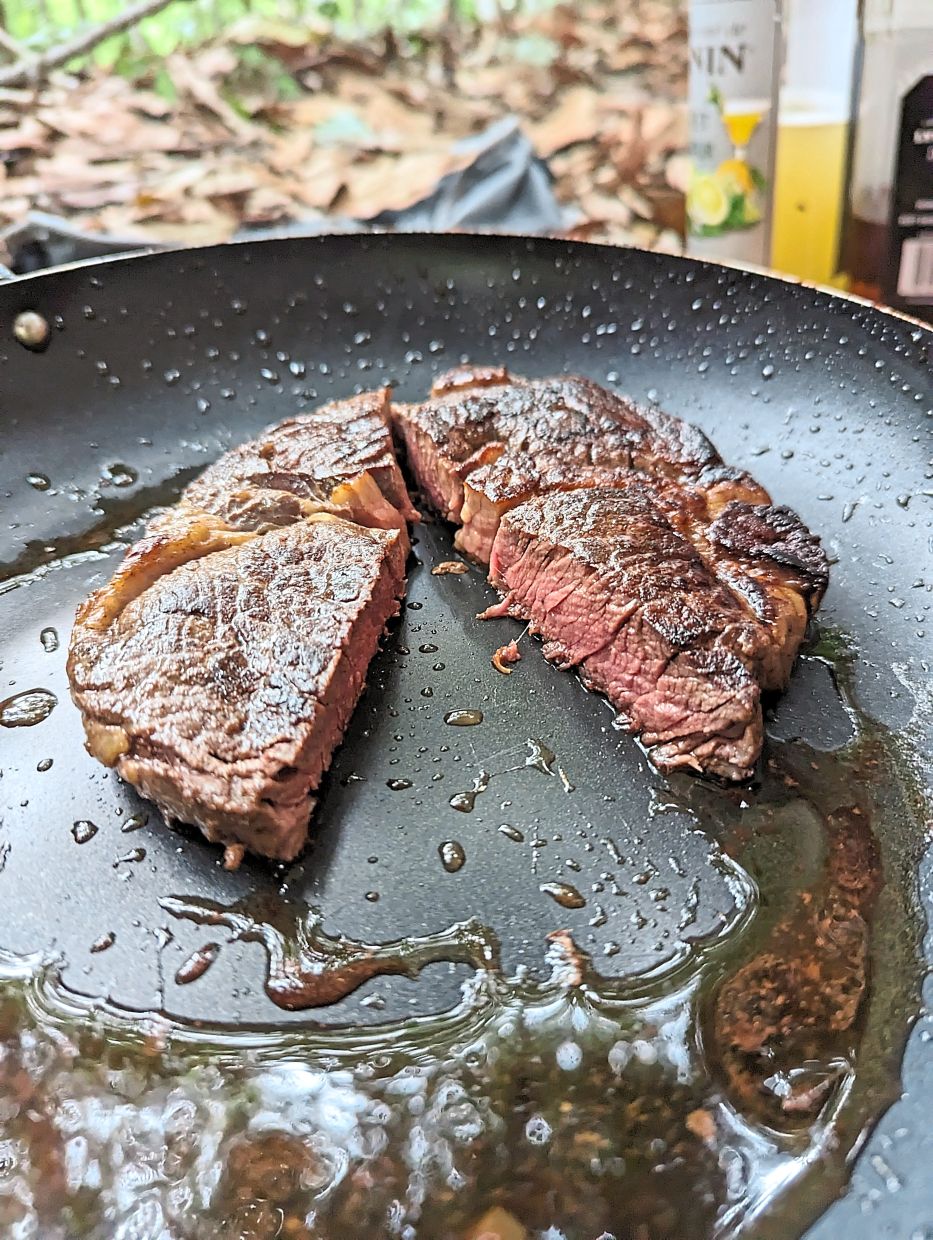Choong seated in his hammock under a large tarp with a foldable table and the rest of his gear while camping in Penang island’s hill range. — Photos: PAUL CHOONG
With at least 30 hiking trails in Penang, thousands of Penangites march around the trails regularly.
And some go beyond that; they shoulder backpacks and go on overnight camping trips.
The situation is a veritable blessing because, being a small state, Penangites need only spend a few minutes driving to reach the hiking trails and then hike around 30 minutes to an hour to reach the campsites of their choice.
One such hiker is internet marketer Paul Choong, 47, who likes to do overnight camping trips along Penang island’s hill range every chance he gets.
He has been going on hiking trips since he was a schoolboy and after so many years, has become quite familiar with the trails to the point that he sometimes goes off the beaten track.
“When I hear water gurgling along a stream or spring, I tend to go off-trail and follow the water upstream,” he said.
This has led him to discover little pockets of clearing, sometimes even cliff sides that offer a panorama of the island’s plains down below, sea and even Kedah on the horizon.
“My work makes me spend hours a day in front of the computer. About five years ago, a few friends of mine decided to add an overnight camping trip to our regular hiking trips. It became a chance for me to get away and heal myself,” he said.
During the movement control order, Choong said the urge to take to the hills and spend nights surrounded by the sounds of the jungle became even stronger.
“I realised that we tend to complicate our lives; the simplest things are what we actually need,” he said, adding that after the pandemic was over, he made it an effort to hike up the trails not far from his home and make overnight camping trips a part of his life.
Choong said he has gone camping in managed campsites in the past, but does not like how convenient it is since such campsites tend to provide bathrooms, toilets and kitchens.
“I sought out friends who had fruit orchards and asked for permission to camp there and got hooked on ‘wild camping’,” he said, adding that going off-trail on Penang’s hiking trails to camp is a step up from camping in fruit orchards.
He admits that spending nights in the wild was a bit frightening for him at first.
“The fears come from a general belief about spirits and wild animals. But after you do it over and over again, you realise those are all misconceptions, but I still practise the custom of not bringing pork and respect the possibility that there exists unseen entities,” he said.
Since there is hardly any level ground in the hills for a tent, Choong uses a hammock strung up below a large tarp.
He started off with a 3mx3m tarp and graduated to using a 4.5mx3m one. He even has a 5mx4m tarp (the space of a large master bedroom) for camping spots big enough for him to use it.
The highlight of Choong’s quickie camping trips is the cooking.
He revels in bringing steaks, seafood, honeyed chicken, fresh greens, cheese, baguette and many more ingredients to whip up a veritable feast in the woods.
For meats, he cuts them up to size in his home kitchen, freezes them and wraps them in insulated bags to carry in his backpack.
Since the drive plus hike to his camping sites is less than 10km from home, Choong said the meats are sometimes still frozen on arrival and he needs to wait for them to thaw before he can cook.
He always brings a stove or even charcoal briquettes if he wants to do some grilling and avoids gathering firewood.
“Fallen branches and trees are habitats and even food for many animals. When the wood rots, nutrients are returned to the soil. So don’t gather firewood unless you really have to,” he stressed.
To discipline himself, Choong avoids bringing what some might consider a piece of standard camping equipment – the machete – as a cutting tool. His choice is a simple made-in-Sweden 10.4cm camp knife that campers around the world have been using for over a century.
“I avoid clearing brush or the safety of an overnight campfire. One small battery- powered lamp is more than enough for our campsite,” he said, adding that he would camp overnight with a few friends and has even gone camping solo.
He said one of the most important tools to bring on such camping trips is a water-resistant smartphone.
There are many hiking apps which allow for maps of the intended area to be pre-downloaded so that phone reception is not crucial, while the GPS location and compass features in the phone are independent of signal reception.
“These apps will tell you where you are heading, show you the topography of the area so you can choose your paths and even tell you where you friends are in case you get separated.
“It is a vital tool for camping in true wilderness,” he said.








